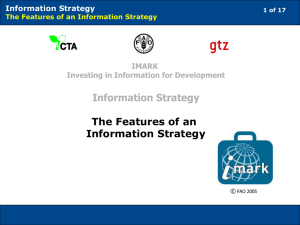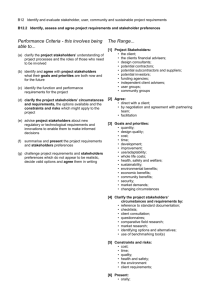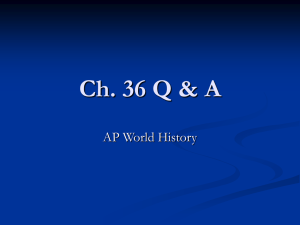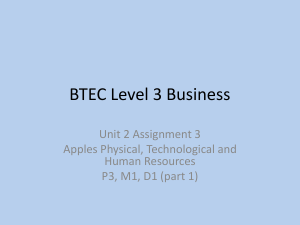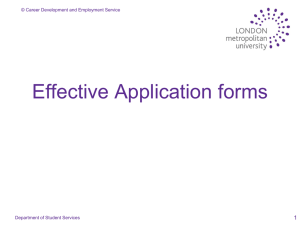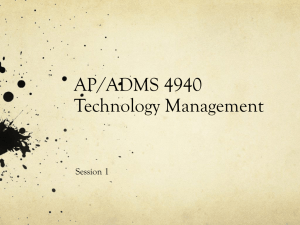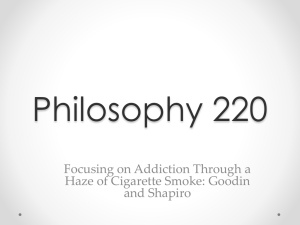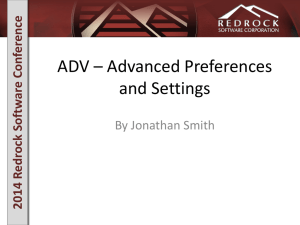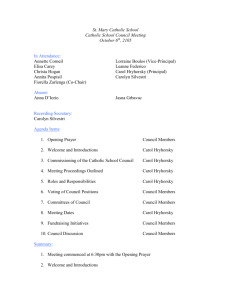The Information Culture Framework as a Component of
advertisement
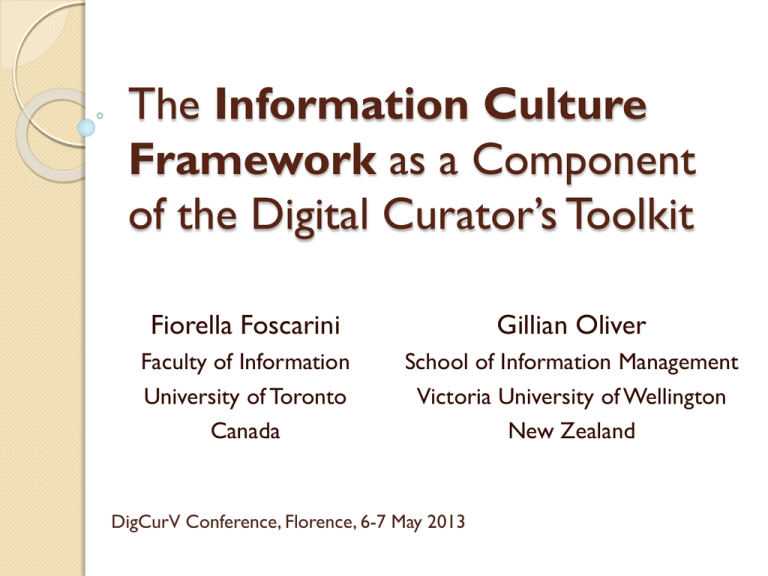
The Information Culture Framework as a Component of the Digital Curator’s Toolkit Fiorella Foscarini Gillian Oliver Faculty of Information University of Toronto Canada School of Information Management Victoria University of Wellington New Zealand DigCurV Conference, Florence, 6-7 May 2013 Presentation Overview Understanding the context of digital information creation and use Concepts of organizational culture and information culture Information Culture Framework (ICF) Teaching implications Understanding Context Limitations of existing models, methods and strategies OAIS; DCMI; DIRKS; IP COP; MoReq2010; etc. Notion of ‘human activity system’ “People, processes and [structures] are inextricably linked… People issues are predominant, fundamental and challenging as they concern culture, philosophical attitudes, awareness of [information management] issues, preferences, knowledge and skills…” (McLeod et al., AC+erm Project. Final Report, 2010, p. 17) Organizational Culture “A pattern of shared basic assumptions invented, discovered, or developed by a given group as it learns to cope with its problems of external adaptation and internal integration, that have worked well enough to be considered valid and therefore to be taught to new members ...” (Schein, 1985) ASSUMPTIONS ESPOUSED VALUES ARTEFACTS & BEHAVIOURS Information Culture Information culture vs. Culture of information “Information cultures… [are] the manifestations of organizational culture that portray values and attitudes towards information in organizations” (Oliver, 2011) A Layered View of Culture Level Definition Supranational • Regional • Ethnic • Religious • Linguistic Any cultural differences that cross national boundaries National Collective properties ascribed to citizens of countries Professional Sets of values and practices acquired through training and formal education Organizational Social and normative glue that holds organizations together Group Cultural differences contained within a single group, workgroup, or other collectivities at a level less than that of the organization Karahanna et al. (2005) IGI Global © - Reproduced with permission Information Culture Framework III IT governance Trust II Information-related competencies Awareness of environmental requirements I Values accorded to information Information preferences Language considerations Regional technological infrastructure Information Culture Framework III IT governance Trust II Information-related competencies Awareness of environmental requirements I Values accorded to information Information preferences Language considerations Regional technological infrastructure Information Culture Framework III IT governance Trust II Information-related competencies Awareness of environmental requirements I Values accorded to information Information preferences Language considerations Regional technological infrastructure Information Culture Framework III IT governance Trust II Information-related competencies Awareness of environmental requirements I Values accorded to information Information preferences Language considerations Regional technological infrastructure Teaching Implications ICF purpose: ◦ To raise future digital curators’ awareness of the social, cultural, ethical, economic, political, and technological influences that constrain and enable creators, users, and preservers of digital objects To be applied in conjunction with other tools Ethnographic methodology Thanks! fiorella.foscarini@utoronto.ca gillian.oliver@vuw.ac.nz
